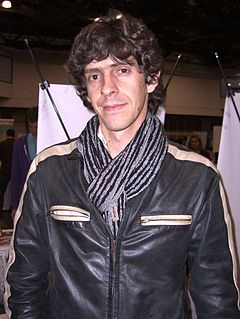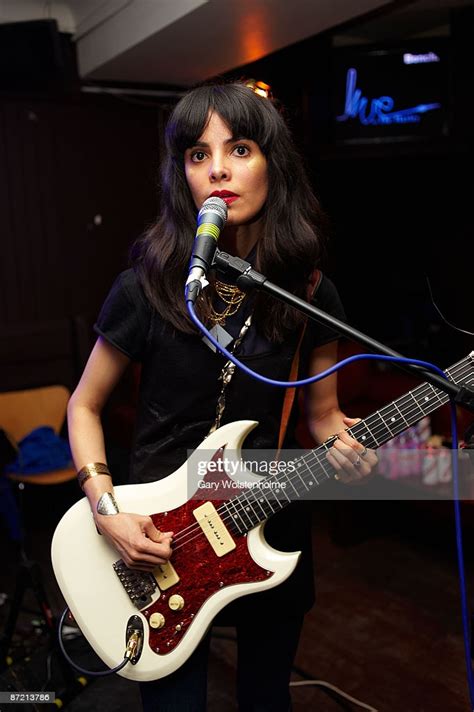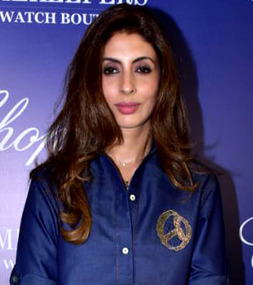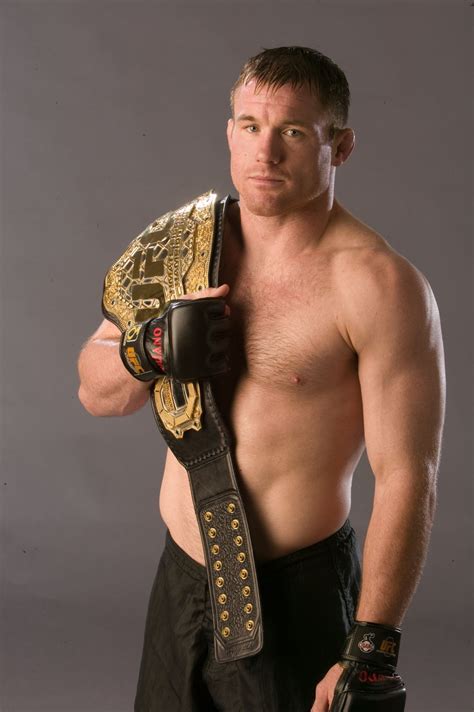A Quote by Claire Cameron
I cried most days working on the first draft. The last scenes were the hardest. I had a feeling where I wanted to end - the exact note - but I couldn't see how to get there. Sarah Murphy, my editor, asked the right questions to help me. I think of 'The Bear' as a hopeful book.
Related Quotes
I had invited 50 or 60 peers and friends, most of whom were parents, to see the film [Trust], and I asked about the last scene. It was interesting because it was split right down the middle, 50/50. About half the audience wanted it to end with the very emotional scene between Clive and Liana, and that feeling of realization and catharsis. And, the other half were adamant about keeping that last scene.
I always thought the editor should cut the film and so I'll come in and look at the movie. Just because that's the only way I can really see the ideas of the editor, it's really working together. Yes it's a hierarchy, yes I'm the boss, but I like to see and to think about the idea, and it's about us asking, 'do we have to say that?' and, 'how do we make it there?' So it's advising the editor, it's very give and take, it's very free, but in the end, it's wonderful once you get through the first couple of cuts.
Like most of my poems, 'Lie' has several sources: I read a very troubling book called The Sixth Extinction. I took note of the way people, including me, enjoy talking knowledgeably about how the world will end. I drove to Tucson and saw the desert flowering on either side of the road. And I glanced at my spam to see what people wanted to sell me these days.
Writing the first draft of a new story is incredibly difficult for me. I will happily do revisions, because once I can see the words on the page, I can go about ripping them up and moving scenes around. A blank page, though? Terrifying. I'm always angsty when I'm working my way through a first draft.
My last point about getting started as a writer: do something first, good or bad, successful or not, and write it up before approaching an editor. The best introduction to an editor is your own written work, published or not. I traveled across Siberia on my own money before ever approaching an editor; I wrote my first book, Siberian Dawn, without knowing a single editor, with no idea of how to get it published. I had to risk my life on the Congo before selling my first magazine story. If the rebel spirit dwells within you, you won't wait for an invitation, you'll invade and take no hostages.
The best advice on writing was given to me by my first editor, Michael Korda, of Simon and Schuster, while writing my first book. 'Finish your first draft and then we'll talk,' he said. It took me a long time to realize how good the advice was. Even if you write it wrong, write and finish your first draft. Only then, when you have a flawed whole, do you know what you have to fix.
It's always easiest for me as a writer if I know I have a great ending. It can make everything else work. If you don't have a good ending, it's the hardest things in the world to come up with one. I always loved the ending of 'The Kite Runner,' and the scenes that are most faithful to the book are the last few scenes.
Almost all good writing begins with terrible first efforts. You need to start somewhere. Start by getting something-anything-down on paper. A friend of mine says that the first draft is the down draft-you just get it down. The second draft is the up draft-you fix it up. You try to say what you have to say more accurately. And the third draft is the dental draft, where you check every tooth, to see if it's loose or cramped or decayed, or even, God help us, healthy.







































